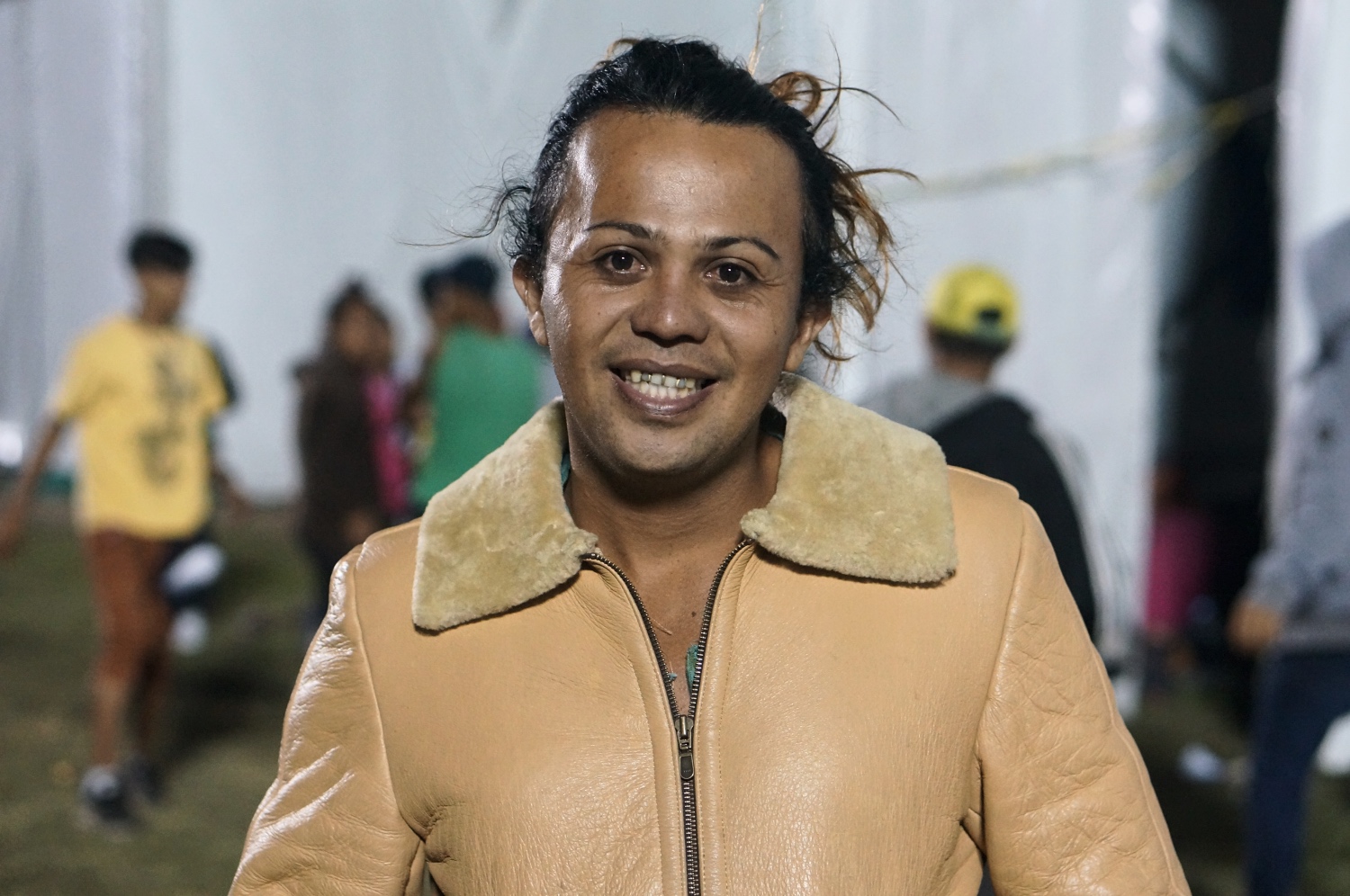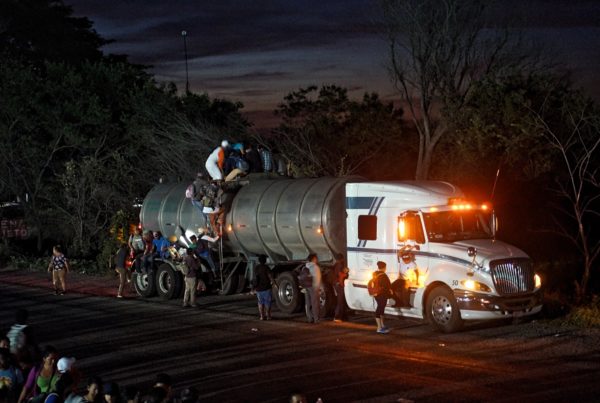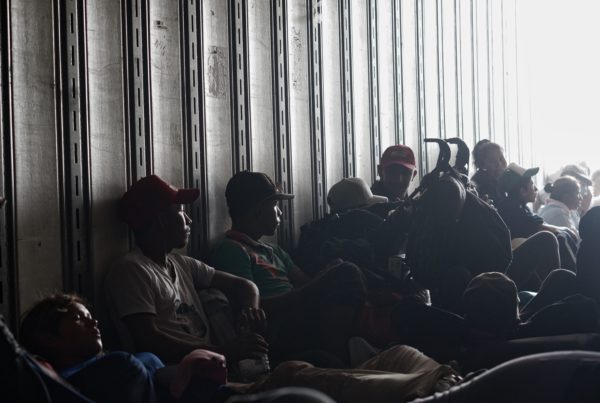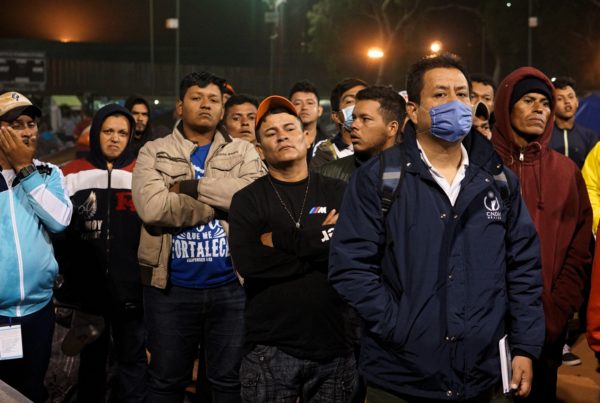Dulce Celeste is wearing a tan faux leather jacket, a donated item from the generous Mexican public. Her blond-tipped hair is tied up in a ponytail. She is 29 years old and she identifies as a trans woman.
She is from a village called El Petén in Guatemala, located about 8 hours from Guatemala City. She describes her village as being “the arse of the devil”. She lived with her sister before she joined the caravan.
She was 15 years old when her mother died. After that she gave herself to liquor and “walked away from life”.
She worked for a fishing company called Paradise Springs but the company closed and they fired all the staff. She was out of work for 3 months and then she heard news of the caravan and she decided to leave. She was terrified of the journey, but she somehow found the courage and left.
“I did not bring anything. I threw everything away. What I would have liked is my dresses and all of my paintings.”
She jumped in the back of a trailer, leaving her house in El Petén at 3 o’clock in the afternoon. That night she slept on the floor of a stranger’s house and the next day she found the people of the caravan.
Lack of work wasn’t the only reason she left. Like many people in her situation, lack of work simply precipitated her departure.
“I saw that they killed people in my town and I was scared. And so I came,” she tells me.
She tells me she had a husband of 9 years and then last year they separated. He found another woman, and they had children together. Dulce spent the next 6 months drinking, crying and yearning for him. Her partner lived next door to her sister. When they split, Dulce built a little wooden house for herself away from them so she wouldn’t have to see him. Because if she passed his house, she couldn’t stop crying.
Dulce tells me there is a lot of discrimination in Guatemala against trans people. Her husband’s parents did not like their relationship. One day the police arrived at her house and told her that her husband’s dad had paid 3,000 quetzales (almost US$400) to kill her. She believes her father-in-law convinced her husband to leave her because he wanted a grandchild. Dulce and her ex-husband are no longer in contact.
Even now, in the caravan, Dulce is concerned for her safety.
“It is very dangerous,” she says. “Children have been lost.”
Thus far she has only endured discrimination, but as a trans woman she doesn’t feel safe walking alone at night in the caravan.
“It’s the same on the street as in the caravan,” she says.
She says there is about 60 or 70 people in the caravan’s LGBTQI community. They travel in a group for safety.
“We have come to know each other here. We are all united.”
Dulce’s American dream is to work for about 5 years and earn enough to build her a house, establish a business, and help her family. After that she will return to Guatemala.
“And look for love, too?” I ask.
“Yes. Yes. Because one nail drives out another, as they say,” she replies.
It may be hard for some people to believe they have something in common with a persecuted, impoverished trans woman from Guatemala, but her story is essentially one of a broken heart and a dream for a better life.



